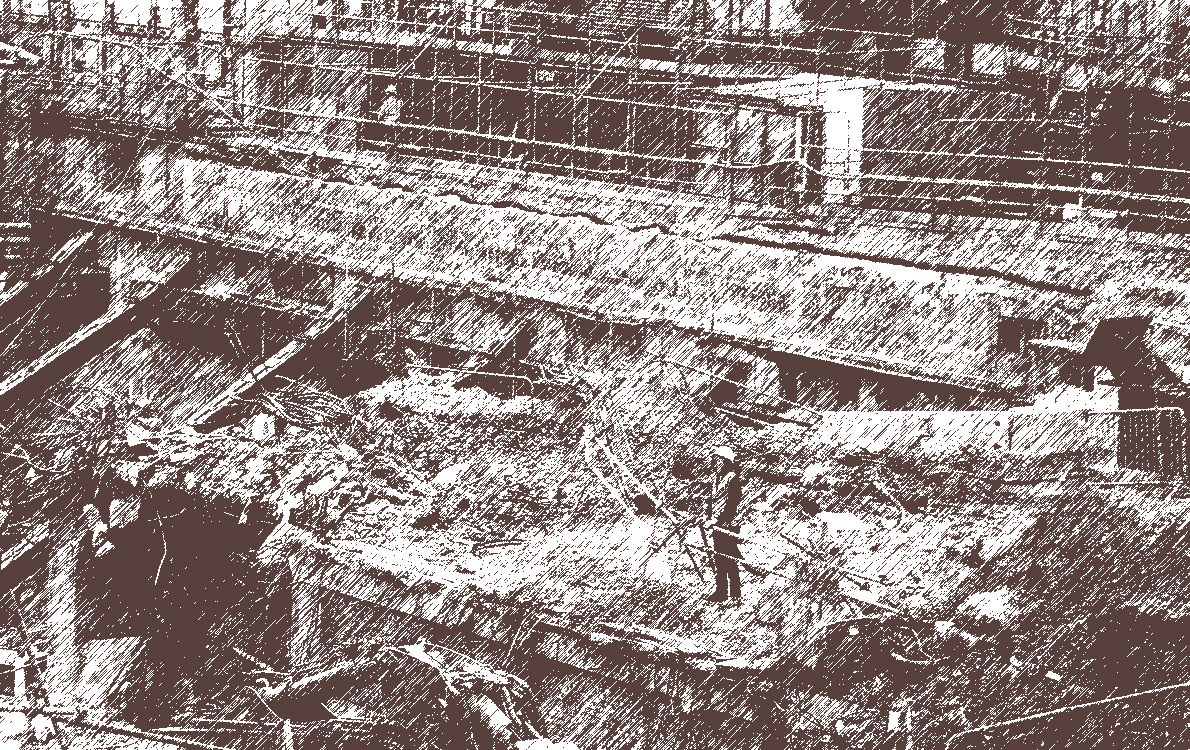30+ construction companies that used trafficked slaves were just the tip of the iceberg
More than 30 firms working in and around London have been identified as having had working on their sites some of the 300-500 people trafficked into the construction industry by an organised crime gang.
However, those identified were only a fraction of the number infiltrated by this long-operating gang.
That's the conclusion of a report called Operation Cardinas and Beyond: Addressing exploitation risk in the construction sector by the Independent Anti-Slavery Commissioner.
It says the men were trafficked into the UK construction industry between 2009 and 2018 by a Romanian-based organised crime gang. It does not suggest the 30 firms who used them knew they were employing modern slaves, but presents a case study of one unnamed company that helped in the investigation that led to members of the gang being convicted and sent to prison.
In a UK court, Judge Rajeev Shetty said: “This case involved the degradation of fellow human beings. It involved the denial of their humanity and failure to recognise that these are human beings who feel pain and misery just like all of us. That disgusts me.”
On 19 June 2019 three members of the Romanian Lupu family were found guilty of modern slavery offences. Grigore Lupu, then 39, was jailed for 10 years. His older brother, Alexandru (43) received an eight year sentence and their nephew Valentin (24) received 10 years.
In a later trial, six members of another organised crime group linked to the case were convicted in a Romanian court. They were awaiting sentencing when the report was written.
The self-proclaimed purpose of the Independent Anti-Slavery Commissioner report is that lessons should be learnt from a major modern slavery case in construction, factors that led to the exploitative environments in the sector should be explored, and the most effective ways that businesses can safeguard workers should be identified.
In a foreword to the report Dame Sara Thornton, the Independent Anti-Slavery Commissioner, says: "While the [construction] sector is striving to meet its sustainability and carbon targets, it faces particular challenges in the ethical management of labour.
"The ongoing skills shortage, which has historically been offset by migrant workers, has been exacerbated by the pandemic and changing immigration rules." She does not mention the loss of Eastern European workers as a result of Brexit, but that, too, has taken its toll on labour availability.
"The sector’s labyrinthine network of subcontractors obscures visibility of lower levels of supply chains. Financial penalties for delays, shortages of labour and materials, and the rapid churn of the workers, place numerous pressures on contractors on a daily basis.
"This report looks at what happens when criminality infiltrates legitimate business supply chains."
The trafficked men were recruited in Romania with offers of what to them looked like impressively high wage rates, with travel, food, accommodation and protective workwear paid for. Victims believed they would be able to earn enough to support their families back home.
On arrival, the deception became immediately apparent when they were told they would have to repay the cost of the transport, their accommodation, food and ppe. Victims had been tricked into a state of debt and destitution and did not have the means to leave and find work elsewhere. Despite the brutal environment, the majority did not attempt to escape. This was partly out of disempowerment and fear of reprisals, but also in the hope that they would eventually receive what they were owed, as the gang kept promising as one of the methods of exerting control.
In order to get on to construction sites they needed CSCS cards, some of which were fraudulently obtained from a co-operating testing centre and for which the men were charged excessive amounts. They were also charged for their transport to the sites they were working on.
The Lupus family and their associates often worked alongside the victims on building sites, acting as interpreters and ensuring the victims did not step out of line or bring attention to themselves. Sometimes an alpha victim would be left in charge. These are victims that have been abused and conditioned over a long period of time. Having earned special status with the traffickers, they exert control over fellow victims in return for privileges.
The Lupus family is not alone in trafficking slave labour to the UK construction industry and the Independent Anti-Slavery Commissioner report includes suggestions for tackling the crime and calling on contractors and clients to be more vigilant about identifying those being coerced to work for them and to require everyone on site to report any suspicions.
The report makes sobering reading. To read it and download it as a PDF click here.
To report suspicions of modern slavery call the modern slavery helpline on 0800 0121 700 or report it online at www.modernslaveryhelpline.org/report.

